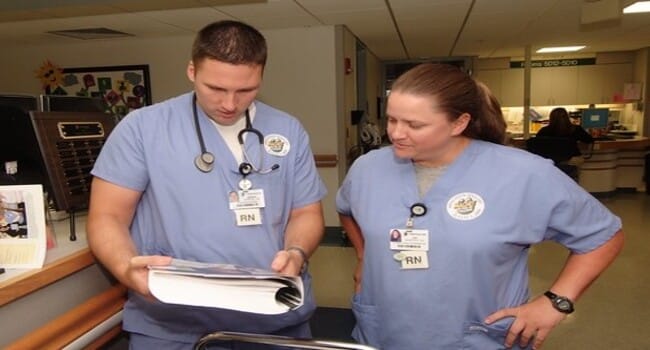A wide range of experts work diligently behind the scenes in the complex and large field of healthcare to guarantee the health and recovery of patients. Among these unsung heroes are the dedicated individuals who pursue careers in allied health. Allied health professionals play a crucial part in the healthcare system, providing essential support services that are vital for the diagnosis, treatment, and rehabilitation of patients. In this article, we delve into the numerous advantages of embarking on a career in allied health.
Diverse Career Opportunities
One of the most appealing aspects of allied health careers is the breadth of options available. From respiratory therapists and radiologic technologists to physical therapists and speech-language pathologists, there are numerous paths to explore within the allied health sector. People can find a specialty that fits their interests, abilities, and goals because of this diversity. For those pondering, is healthcare a good career path? this variety ensures that there’s likely a niche within allied health that aligns perfectly with their aspirations and offers ample opportunities for growth and fulfillment.
Job Stability And Demand
The need for allied health workers is rising at a steady rate, because of both an aging population and improvements in healthcare technology. The Bureau of Labor Statistics predicts a substantially greater rate of growth for healthcare jobs compared to all occupations. Therefore, compared to other fields, allied health offers more job security and a lower unemployment rate to those who want to work in the field.
Competitive Salaries
Pay and benefits in the allied health field are frequently among the best in the industry. Achieving a comfortable standard of living while making a meaningful difference in the lives of others is possible for many allied health professions, while incomes might vary depending on factors like location, experience, and expertise.
Opportunities For Advancement
The allied health field offers ample opportunities for career advancement and professional growth. Whether through additional certifications, specialized training, or pursuing advanced degrees, allied health professionals have the flexibility to expand their skill sets and take on leadership roles within their respective fields.
Flexibility And Work-Life Balance
Unlike some healthcare professions that require round-the-clock shifts or on-call duties, many allied health careers offer more predictable schedules and greater flexibility. Those with families or who are trying to find a better work-life balance may find this particularly helpful.
Direct Interaction With Patients
While allied health professionals may not always be at the forefront of patient care, they still have ample opportunities to interact directly with patients and make a meaningful impact on their lives. Whether administering treatments, providing rehabilitation services, or offering emotional support, allied health professionals play a crucial role in enhancing the overall patient experience.
Collaborative Environment
Comprehensive patient care is the goal of allied health workers, who collaborate closely with doctors, nurses, and specialists. This collaborative approach fosters a dynamic and supportive work environment where professionals from diverse backgrounds come together to solve complex medical challenges.
Continuous Learning And Innovation
The healthcare industry is dynamic, with innovations in technology, treatments, and therapies appearing daily. Attending conferences, taking part in continuing education programs, and embracing innovation are all ways that allied health professionals can engage in lifelong learning and remain at the forefront of their areas.
Job Satisfaction And Fulfillment
Making a difference in people’s lives is incredibly rewarding, and it’s one of the main draws of a career in allied health. Assisting patients in regaining mobility following an injury, helping those with speech difficulties, or providing support to those with chronic diseases are all ways in which allied health professionals contribute to the betterment of people’s lives and the promotion of overall wellness.
Conclusion
A career in allied health offers a myriad of advantages, including diverse career opportunities, job stability, competitive salaries, opportunities for advancement, flexibility, direct patient interaction, a collaborative environment, continuous learning, and above all, job satisfaction and fulfillment. For those passionate about making a difference in the healthcare field, pursuing a career in allied health may be the perfect path to a rewarding and meaningful profession.
